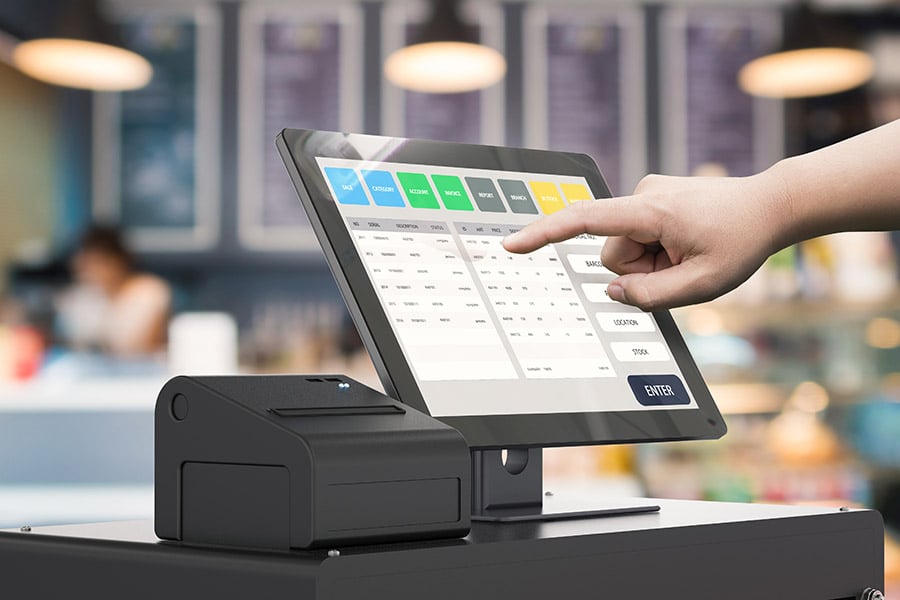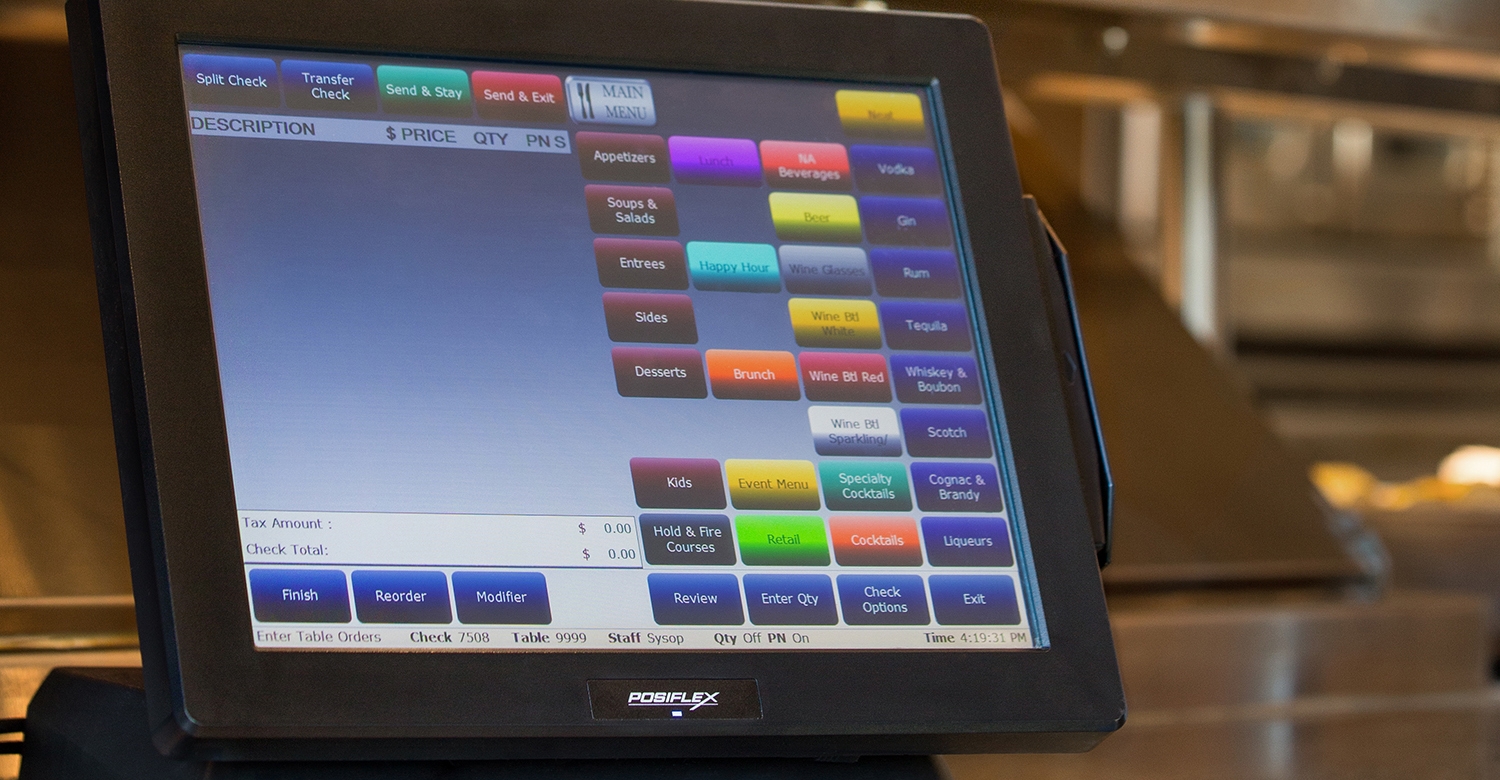Pos Systems - The Facts
Pos Systems - The Facts
Blog Article
The 7-Minute Rule for Point Of Sale Software

Pos System for Small Business: Retail Point-Of-Sale Solutions Streamline Deals
Examine This Report about Pos Software

Hardware Components of a Point of Sale System website What makes a POS system tick? It's not just software; the hardware plays a starring function. Consider it as the body to the software application's brain. Without the best hardware, even the most advanced POS software application is just a quite face. Vital POS Hardware So, what are the must-haves? Let's break it down. The main processing system, often a computer or tablet, is the heart of the operation. The screen or touchscreen show permits personnel to connect with the system. A barcode scanner speeds up the checkout procedure. Remember the days of by hand entering each code? The trusty receipt printer provides clients with a record of their purchase. A money drawer keeps your cash safe and arranged. A card reader permits customers to pay with credit or debit cards. Diving Deeper: Beyond the Essential However wait, there's more! Depending on your organization, you might need specialized hardware. For instance, a dining establishment might integrate cooking area printers to relay orders, while a retail shop might utilize label printers for item tagging. Ever question how your local bakeshop immediately prints those delicious-looking labels? Selecting the Right Hardware: A Balancing Act Selecting the right hardware isn't practically purchasing the most pricey equipment. It's about discovering the sweet area in between performance, resilience, and budget. A small company just beginning might opt for a more fundamental setup, while a high-volume retailer will require robust, high-performance makers. Is it much better to buy brand-new or utilized? Consider your choices thoroughly. A new system uses the current innovation and service warranty protection, however a reconditioned system can conserve you cash. The Future of POS Hardware What does the future hold? Expect to see a lot more integration with mobile phones, biometric scanners for employee authentication, and advanced analytics dashboards displayed on bigger, clearer screens. Think of a world where inventory is instantly updated in real-time as products are scanned-- a world where you can track your best-selling product from anywhere in the world. The possibilities are endless, and the hardware is continually evolving to satisfy the demands these days's businesses. Are you ready to update your point of sale system?
Software Application Features and Capabilities: The Heart of Your POS System
Ever watch a skilled barista glide through a busy early morning rush? Their secret isn't just caffeine; it's a smooth dance with their POS system. The software is the conductor of your business symphony, managing everything from sales to inventory. But what notes should you be listening for? What abilities really matter in today's market?
Stock Management: Beyond Counting Beans
Forget spreadsheets that haunt your dreams. Modern POS systems provide real-time inventory tracking, signaling you when your stock of artisanal coffee beans dips precariously low. Think about it as a digital guardian angel, avoiding those uncomfortable "Sorry, we're out!" moments to clients. What if you could likewise anticipate need based on historical information? Numerous systems now provide forecasting tools, an effective weapon versus overstocking and lost sales. This assists prevent the dilemma of lacking popular products or building up excess inventory of slow-moving products, both of which can constrain cash flow and area.
Sales Reporting and Analytics: Decoding the Information
Sales data is the brand-new gold, and your POS system is the miner. Forget just understanding just how much you offered today. Dive deep into the data to uncover patterns, determine your best-selling products, and comprehend customer behavior. Which menu item pairs perfectly with the day-to-day special? Which promo resonated most with your customers? These insights are not just intriguing; they're actionable intelligence. Without trusted sales reporting, browsing the intricacies of business decision-making becomes like cruising without a compass, increasing the opportunity of errors and missed opportunities.
Customer Relationship Management (CRM): Building Bridges, Not Walls
Remembering a routine client's name and preferred order is charming, but scaling that personal touch is tricky. POS systems with CRM capabilities permit you to track client purchase history, preferences, and even birthdays. Think of automatically providing a discount on their birthday-- a little gesture that cultivates commitment and motivates repeat business. There is the possible snag of bad information quality, which can lead to unreliable customer profiles and ineffective marketing efforts.
Payment Processing: Simplifying the Deal
The checkout experience can make or break a sale. Smooth integration with numerous payment methods-- charge card, mobile wallets, even copyright-- is non-negotiable. Can your system deal with split payments? Does it provide safe and secure tokenization to safeguard consumer information? A clunky payment procedure is like striking a sour note in your service symphony, potentially disrupting the whole performance. Guaranteeing compatibility with developing payment innovations and adherence to security requirements are paramount for preserving consumer trust and functional performance.
Worker Management: Keeping the Team in Sync
From clocking in and out to managing authorizations and tracking efficiency, worker management includes enhance operations and enhance accountability. Is scheduling a headache? Numerous POS systems offer integrated scheduling tools, enhancing staffing levels based on forecasted need. A common barrier that is typically ignored is the challenge of incorporating employee management functionalities with payroll systems, which can cause mistakes and inefficiencies in wage calculations.
Advanced Characteristics: Leveling Up Your Operations
- Table Management: Perfect for dining establishments, this function enables you to picture your dining-room, track table status, and manage appointments.
- Commitment Programs: Reward your best consumers and encourage repeat company with incorporated commitment programs.
- Online Ordering Combination: Seamlessly integrate your POS system with online purchasing platforms to broaden your reach.
Selecting the ideal POS system has to do with more than simply performance; it's about discovering a partner that can grow with your business. Consider your existing needs, prepare for future growth, and do not be afraid to ask the difficult concerns. The ideal software can transform your company from a disorderly cacophony into an unified work of art.
Industry-Specific POS System Applications
Think about the local pastry shop, bustling with early morning customers yearning fresh croissants. A generic POS system might handle deals, but can it handle intricate dishes, track ingredient stock, or instantly change production schedules based upon sales data? Most likely not. That is where the charm of industry-specific POS systems shines.
Restaurants and Hospitality
For dynamic restaurants, speed and precision are paramount. The number of times have you seen servers managing orders, adjustments, and splitting expenses, all while attempting to supply excellent service? A dining establishment POS system simplifies these procedures, enabling table management, cooking area order tickets, and even online purchasing combination. These systems often consist of features like ingredient-level stock tracking, essential for managing food expenses and lessening waste. Ever wonder why your preferred meal is sometimes unavailable? It may originate from a lack of appropriate stock management.
- Table Management
- Kitchen Area Order Tickets
- Online Ordering Combination
- Ingredient-Level Stock Tracking
Retail Solutions
Retail, with its varied inventory and customer interactions, demands a different set of tools. Envision a shop clothing shop having a hard time to track sizes, colors, and seasonal collections using a basic checkout system. An industry-specific retail POS system offers functions like barcode scanning, customer loyalty programs, and comprehensive sales reporting. These systems can even incorporate with e-commerce platforms, offering a seamless omnichannel experience for clients. Did you know some retail POS systems can anticipate future sales trends based on historical data? Now that is powerful!
The Hazards of a Mismatch
Picking the incorrect POS system can create substantial functional hurdles. A clothes store utilizing a dining establishment POS, for example, would find it inappropriate for managing inventory with sizes and colors. The absence of proper reporting and analytics might result in misinformed acquiring choices and lost income. The outcome could be similar to attempting to fit a square peg in a round hole.
Key Considerations
Choosing an industry-specific POS system needs cautious assessment. Think of your business's distinct requirements and functional workflows. Does the system integrate with existing software application? Does it use the essential reporting abilities? Is it scalable to accommodate future growth? A well-chosen POS system is not just a transaction tool; it's a strategic property that can drive efficiency, improve customer satisfaction, and eventually, improve your bottom line. Remember, it is an investment in your company's future, not simply an expense.
Security Considerations for Point of Sale Systems
Ever heard the tale of the mom-and-pop shop that lost everything because of a single, neglected security defect in their POS system!.?. !? It's a cautionary tale, and it highlights a crucial element frequently eclipsed by the appeal of elegant functions and structured operations. The reality is, a POS system is only as good as its security. What excellent is a system that crunches numbers in a flash if it enables lawbreakers to swipe consumer's data just as rapidly?
The Vulnerability Minefield
The digital landscape is a battlefield. Every POS system, no matter size or elegance, is a possible target. Are you truly prepared for the risks prowling around the corner? The genuine pinch comes when you find that your outdated software application has an open hole that hackers can exploit, turning your service into an unwitting accomplice in identity theft. The problem is that hackers are crafty and are always changing their methods.
Typical Security Gaps and Specialist Tips
- Weak Passwords: "Password123" isn't cutting it. Usage strong, unique passwords for all POS system accounts and change them frequently. Two-factor authentication is a must.
- Unsecured Networks: Your Wi-Fi resembles leaving the front door open. Secure your network with strong file encryption (WPA3 if possible) and consider a different network for your POS system.
- Outdated Software Application: Software vendors patch security holes all the time. Stopping working to upgrade resembles welcoming trouble. Set up automatic updates or schedule routine upkeep.
- Worker Training: Your personnel is your very first line of defense. Train them to recognize phishing attempts, safeguard passwords, and report suspicious activity.
Data Encryption: Your Shield Versus the Dark Arts
Consider information encryption as a secret code. It scrambles delicate information, like credit card numbers, making it unreadable to unauthorized users. Without file encryption, your customers' monetary details resemble sitting ducks, ripe for the selecting by cybercriminals. It's not practically safeguarding your customers; it has to do with protecting your track record and preventing large fines.
PCI Compliance: The Rulebook You Can't Disregard
If you accept charge card, you're bound by the Payment Card Market Data Security Standard (PCI DSS) It's a set of security requirements designed to protect cardholder data. Failing to comply can result in fines, charges, and even the loss of your capability to process credit card payments. It's a headache, yes, however it's an essential one. Consider PCI compliance as the cost of doing service in the digital age.
Consider this: every deal processed through your point of sale is a potential entry point for destructive actors. By implementing robust security procedures, you're not just securing your company; you're protecting your clients' trust and guaranteeing the long-term viability of your operations. The security of your POS system isn't just a technical problem; it's an organization crucial. It needs continuous alertness, proactive measures, and a commitment to remaining ahead of the curve.